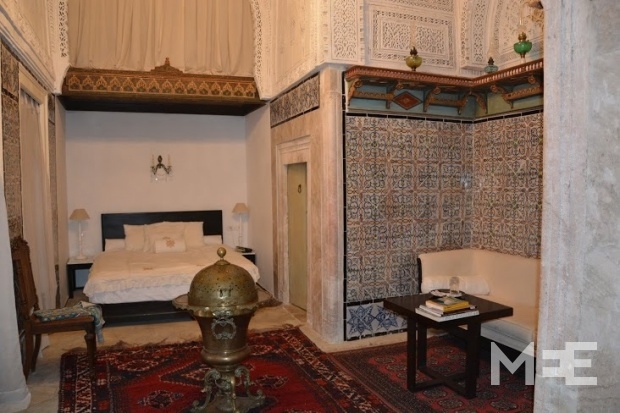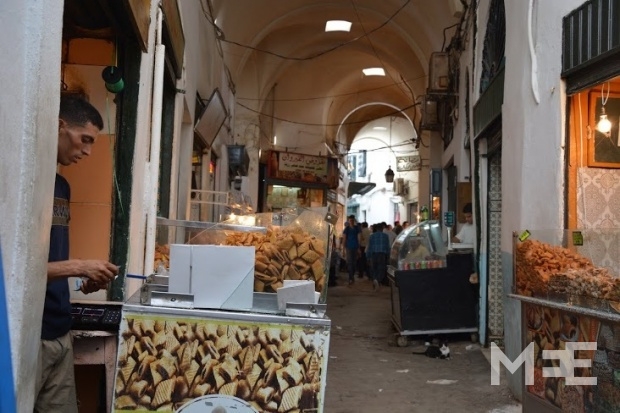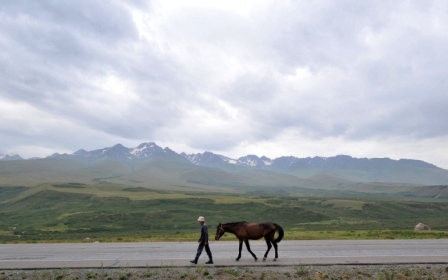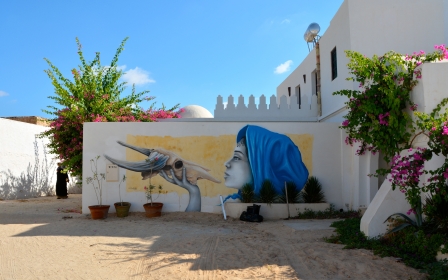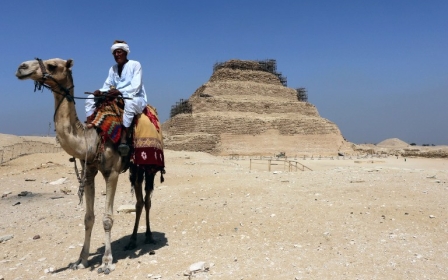Tourism: New Tunisia, new visitors?
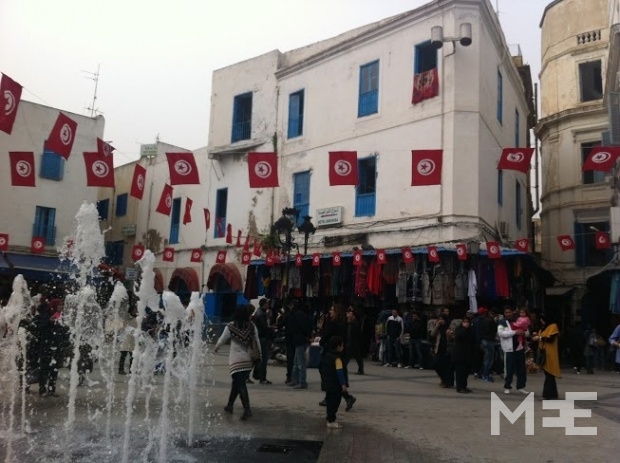
In 2014 the Tunisian capital entered the National Geographic’s Best Trips 2015, an annual ranking of the world’s top travel destinations. In addition, last year saw the country establish a new constitution and successfully hold democratic elections. However, despite these political successes, the country’s economy remains strained. The tourism sector is estimated to make up around 7 percent of the country’s gross domestic product and is considered vital for bolstering the economy. Yet, the number of tourists continues to disappoint four years after the revolution ousted former ruler, Zine El Abidine Ben Ali.
The Tunis medina
One part of Tunisia that is particularly dependent on tourism is the old part of the capital Tunis, the medina. At the entrance of the old quarter stands Bab el Bahr (Sea Gate), built in 1848, and mostly known for its colonial name “Porte de France”. It welcomes visitors to the 270-hectare medina, a UNESCO heritage site, which is home to the landmark Zitouna mosque, madrassas (Islamic schools) and mausoleums with traces of tiles and architecture from its early days in the 8th century.
“There is so much opportunity here,” says entrepreneur, Leila Ben-Gacem, who runs a boutique hotel in one of the small alleys, which are filled with small shops, a labyrinth for the novice, where you find not only touristic stands but traditional handicraft makers. “We underestimate the opportunities in our history and culture - there is so much to show,” she says, referring to Tunisia’s rich archaeological heritage and architecture, which is in the medina.
Her boutique hotel, Dar Ben Gacem, which has seven rooms in traditional Tunisian design and is tucked away in one of the more remote alleys of the medina, was recently given TripAdvisor’s award, Travellers’ Choice of 2015. The idea is to give visitors an authentic experience, which will enrich their knowledge of the medina and its rich history. At the Souk des Chechias, for example, Tunisian woollen hats are made from scratch in the same place they have been made for centuries.
'A country in transition is not an attractive country'
Low season or not, the country has not yet managed to reach the numbers the tourism sector generated in 2010, before the revolution. The post-revolutionary period has been torn by demonstrations, strikes, political assassinations, terrorist attacks and insecurity along the borders, especially with troubled neighbour, Libya. In January 2015, the number of tourists was down 21 percent compared to the same month last year, according to Tunisia’s state news agency. The terror attack in Paris against a satirical newspaper on 7 January had a negative effect on French bookings to Tunisia, “irrational” cancellations according to former tourism minister, Amel Karboul. Three quarters of the 269,065 travellers who visited the country, according to the same source, were of North African origin.
“Security is increasingly mastered by our security forces,” argues Chargui, adding that it is a precondition to get the number of tourists back.
“Many of our customers come here to work,” explains Rafik Mebbeb, waiter at El Ali, one of the area’s most popular cafés, and described by National Geographic as a “serene, book-strewn café and cultural centre where tangy citronnade with almonds is served on a terrace facing the Almohad-style minaret of the ancient Zitouna mosque.” About half of its clients are non-Tunisian, estimates Mebbeb, and many are in the country for business purposes rather than tourism. “Perhaps people are afraid,” says the 26-year-old waiter when trying to explain the last few years’ decline in the number of tourists. “We need to find a solution to the terrorism,” he says, “It might take three to five years to improve Tunisia.”
But Danish tourist, Inge Bemorabe, who is here on her second visit to Tunisia, is not afraid. “This time we are living in Sousse but are in Tunis for the day,” she explains when we meet in one of the busier alleys. “We like Tunisia,” says her companion Aslam Khan, of Pakistani origin, who is in Tunisia for eight days travelling all around the country despite the low-season.
A new type of tourism?
“A country in transition is not an attractive country,” admits Ben-Gacem. However, there may be another type of visitor that Tunisia is increasingly attracting. Before the revolution, during the Ben Ali era, tourists were not encouraged to engage with the local population and most tourists only went to the coastal cities of Hammamet and Sousse where hotels offer all-inclusive packages. “We were accustomed to visitors who were here not because they were interested in the people or the history,” argues Ben-Gacem who can see a change in the type of visitors coming to her hotel. Now visitors to a larger degree include investors, NGO workers, journalists, bloggers, researchers and historians who are interested in getting to know the country. “This is new to Tunisia.”
The fall of Ben Ali also opened up new opportunities within the tourism sector. Before the revolution, everything was controlled by the state, but today it is up to civil society and the private sector to be creative in ways to market their country, the boutique hotel owner explains. One such innovative attempt is the Facebook page “I will be in Tunisia on…” which is an inventive way to try to make visitors share photos from the country. “We must be more innovative in promoting and creating events in several regions to disseminate the historical, cultural and traditional characteristic of each city,” argues the founder, Zied Chargui, from the Tunisian National Office for Tourism. The decline in the number of tourists is not surprising to him. “It is a logical consequence after the political instability,” he says.
Remaining challenges
Even with a new type of visitor, there are parts of the tourism sector that need to improve, argues Ben-Gacem. The service, for example needs to improve. “We need to take pride in serving people,” she says and explains that the mentality needs to change when it comes to service.
Diversity is also a key factor in order to appeal to a larger and more diverse group of visitors. However, in doing so, accessibility to Tunisia needs to improve. Flights are relatively expensive, “Rome is 45 minutes away,” Ben-Gacem says, asking: “Why should we pay so much?” Today there is no budget airline operating to Tunisia, which means that budget travellers may chose a cheaper destination. Better marketing could be one solution, she says. “I don’t think we are marketing ourselves in the way that Tunisia deserves to be marketed.”
New MEE newsletter: Jerusalem Dispatch
Sign up to get the latest insights and analysis on Israel-Palestine, alongside Turkey Unpacked and other MEE newsletters
Middle East Eye delivers independent and unrivalled coverage and analysis of the Middle East, North Africa and beyond. To learn more about republishing this content and the associated fees, please fill out this form. More about MEE can be found here.


